Are you navigating the complexities of equal opportunity employment? It can sometimes feel overwhelming to ensure your organization embraces diversity and inclusivity. Understanding the nuances of equal opportunity laws is essential for fostering a workplace where everyone has a fair chance to succeed. Dive into our article for invaluable tips on how to implement effective practices that promote equality in your hiring process!

Inclusive Language
Inclusive language promotes a diverse and equitable workplace by eliminating bias and ensuring respectful communication. Using terms that acknowledge individual identities, backgrounds, and experiences fosters a sense of belonging among employees. For instance, gender-neutral terms such as "they" instead of "he" or "she" can be employed to encompass all gender identities. Additionally, using person-first language, such as "person with a disability" rather than "disabled person," emphasizes the individual rather than the condition. It's essential to avoid stereotypes and assumptions about cultural or ethnic identities, ensuring that language reflects respect for all. Training sessions on inclusive communication methods can further enhance understanding among employees, creating an environment where everyone feels valued and included.
Non-Discriminatory Practices
Promoting non-discriminatory practices in equal opportunity employment is essential for fostering a diverse work environment. Organizations such as the Equal Employment Opportunity Commission (EEOC) provide guidelines to ensure fairness in hiring and workplace treatment. Essential aspects include avoiding biases based on race, gender, age, disability, or sexual orientation during recruitment (up to 16% of the workforce may face discrimination). Implementing regular training sessions for employees (quarterly training recommended) can raise awareness and promote inclusivity. Establishing a clear complaint procedure enables affected individuals to report incidents without fear of retaliation, thus safeguarding their rights in locations such as corporate offices or government agencies. Regular audits of company policies and practices help identify potential areas of improvement in upholding fair treatment within the workforce.
Access and Accommodation
Equal opportunity employment emphasizes access and accommodation for individuals with disabilities to foster an inclusive workplace environment. Accessibility features, such as wheelchair ramps and designated parking spaces, ensure individuals with mobility challenges can navigate company premises seamlessly. Reasonable accommodations may include flexible work hours, assistive technologies like screen readers, and ergonomic office furniture tailored for comfort. Organizations must comply with legal standards outlined in the Americans with Disabilities Act (ADA) to remove barriers and promote equality in hiring practices while engaging in proactive training programs that raise awareness among employees about inclusivity and diversity. Furthermore, consistent communication with affected individuals about their needs supports an adaptive workplace culture that values everyone's contributions.
Diversity Training
Diversity training programs are essential for promoting equal opportunity employment in organizations. These programs aim to educate employees about the importance of diverse work environments, inclusive workplace culture, and the benefits of embracing differences, such as race, gender, age, and ability. Effective diversity training not only helps in compliance with legal standards, such as Title VII of the Civil Rights Act (1964), but also fosters collaboration and innovation among staff. Employees learn to identify and combat unconscious biases, which can hinder recruitment and retention efforts. Successful initiatives often include workshops, role-playing scenarios, and open discussions that encourage empathy and understanding, ultimately enhancing employee morale and overall organizational performance. Noteworthy organizations such as Google and Microsoft have implemented robust diversity training programs, demonstrating their commitment to cultivating an equitable workplace.
Equal Assessment Criteria
Establishing equal assessment criteria is crucial for promoting fairness and inclusivity in the recruitment process. Transparent guidelines outline requirements such as educational qualifications, professional experience, and specific skills necessary for each position. These criteria should be consistently applied across all candidates, ensuring that personal attributes like age, gender, ethnicity, or disability do not influence hiring decisions. Implementing structured interviews with standardized questions can minimize biases, while assessment tools like competency tests (designed to measure relevant abilities) can provide objective evaluations. Regular training on unconscious bias for hiring managers is essential to foster a culture of equal opportunity within organizations.

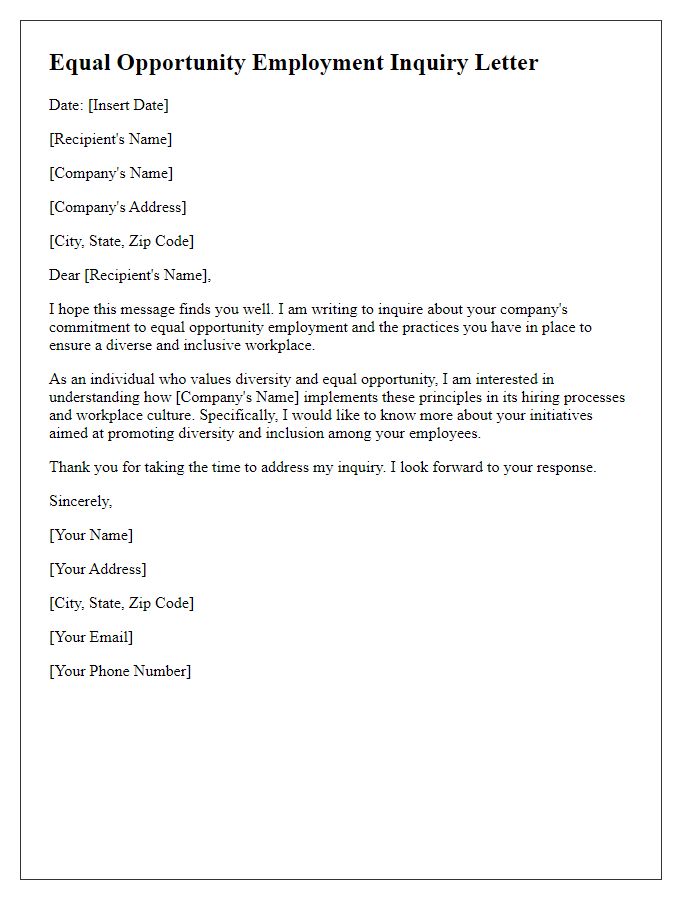
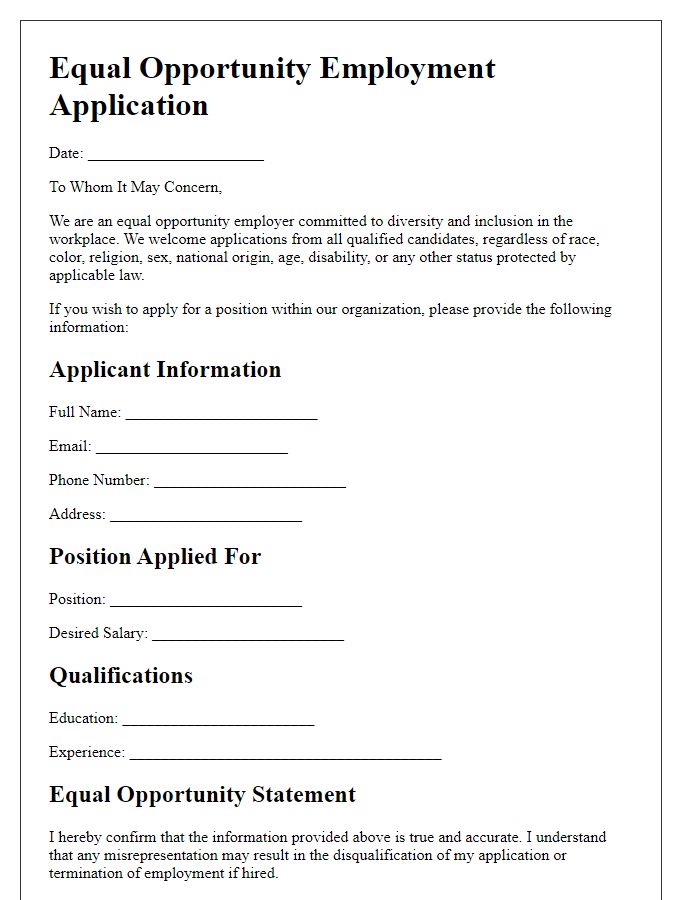
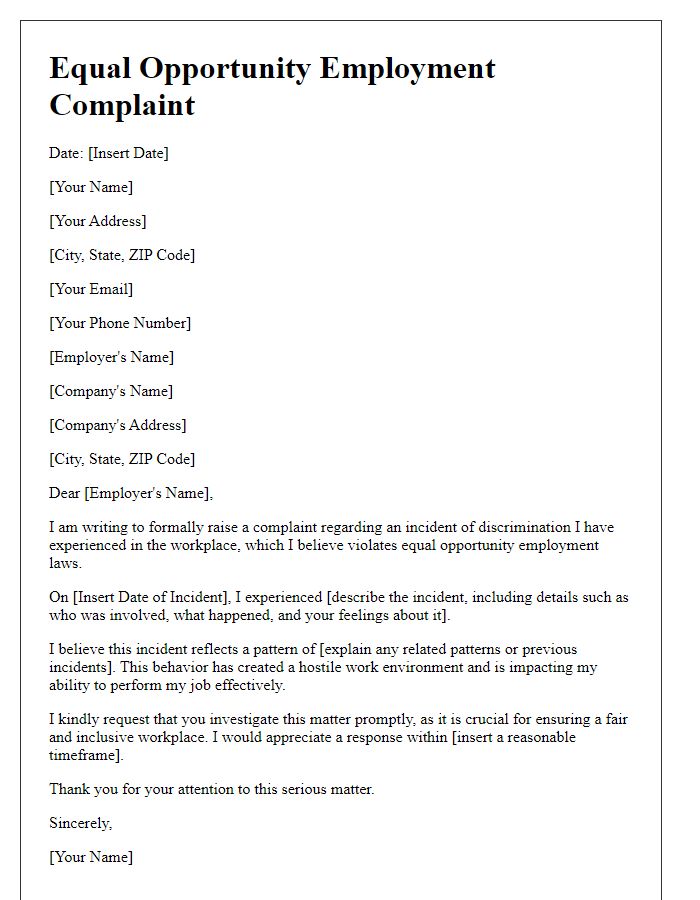
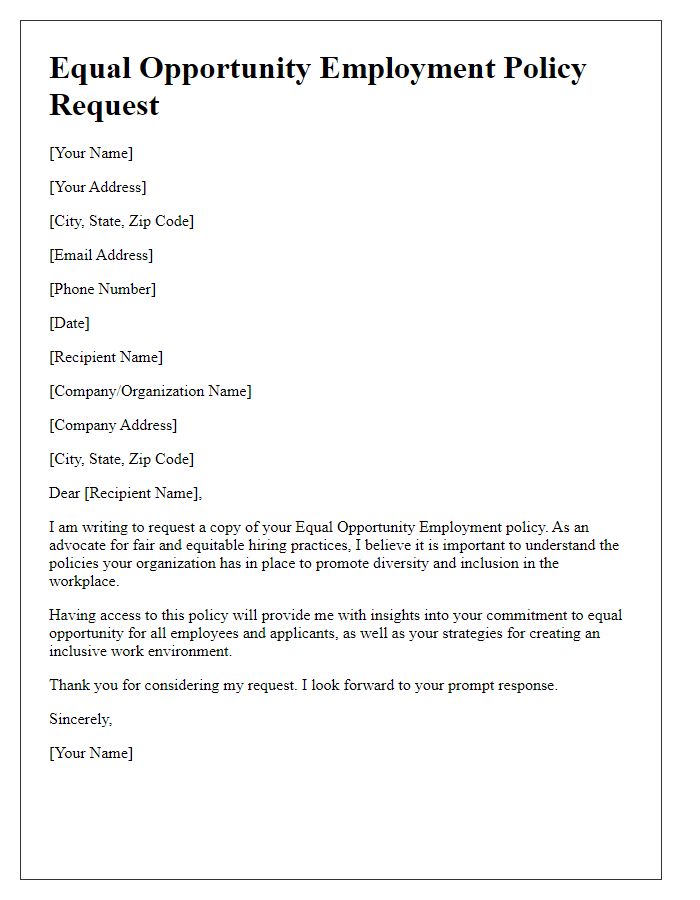
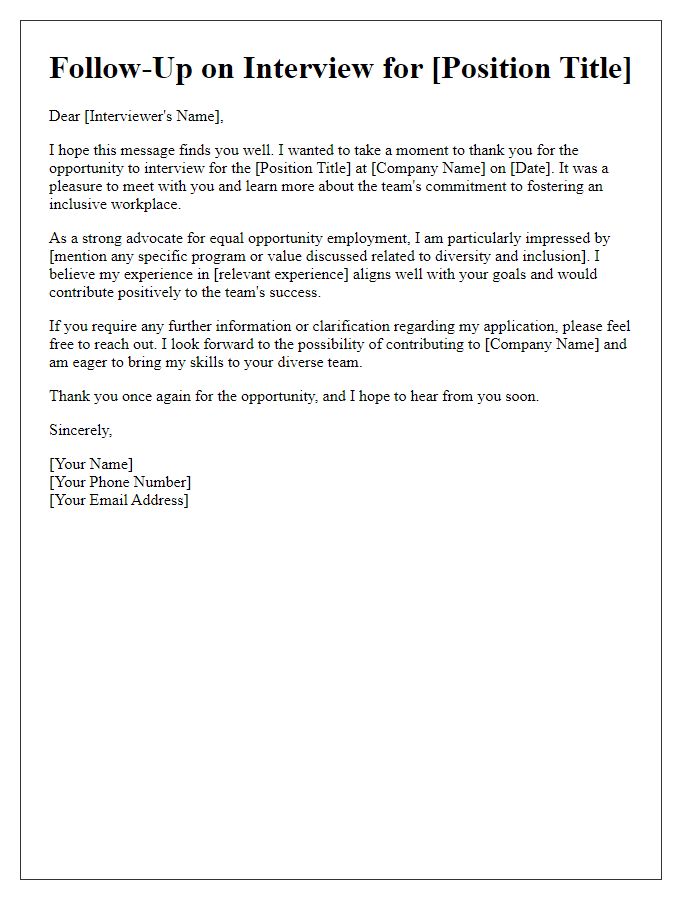
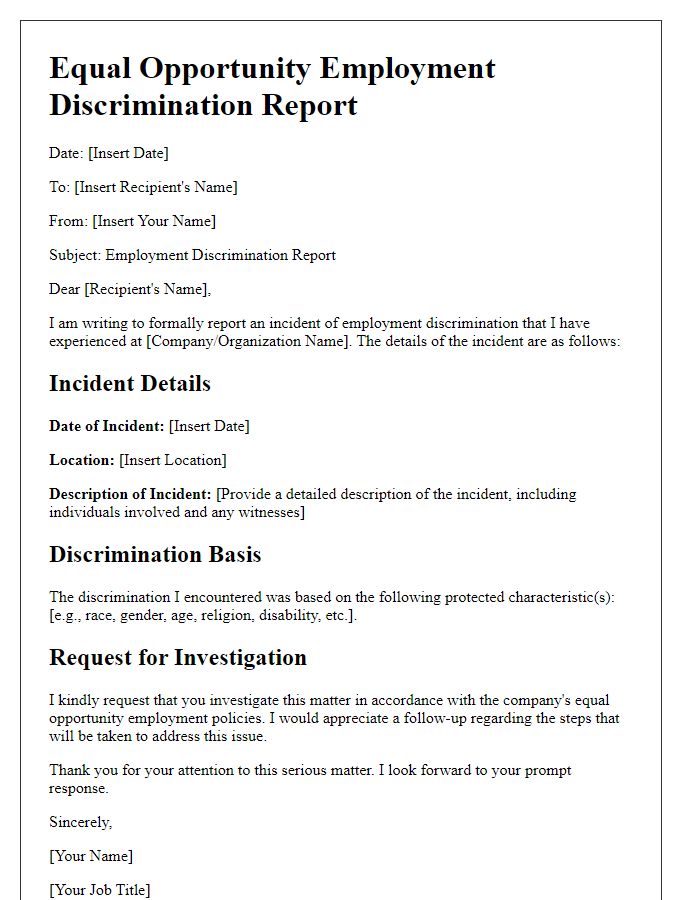
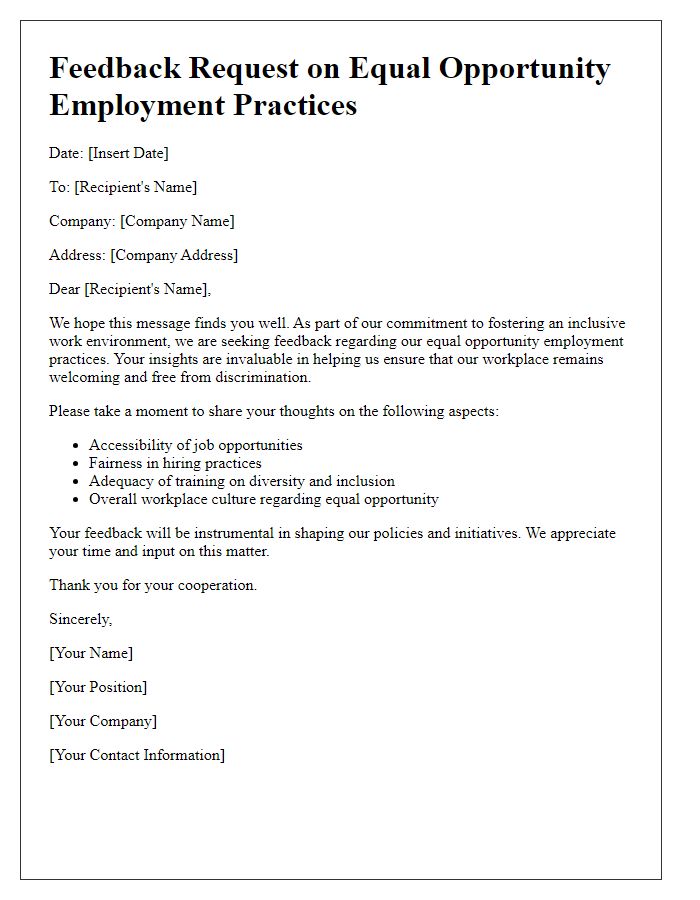
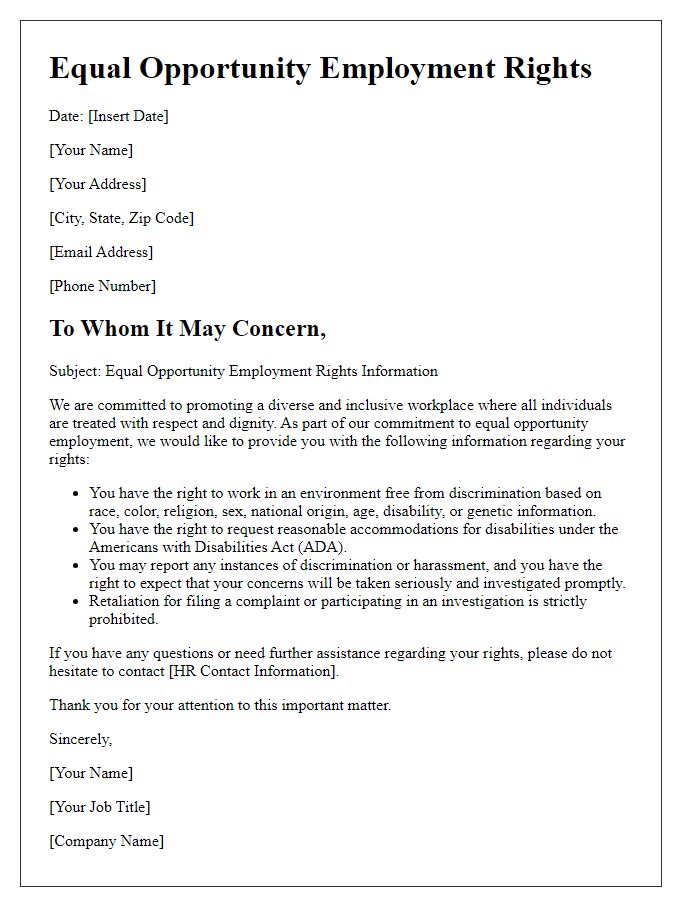
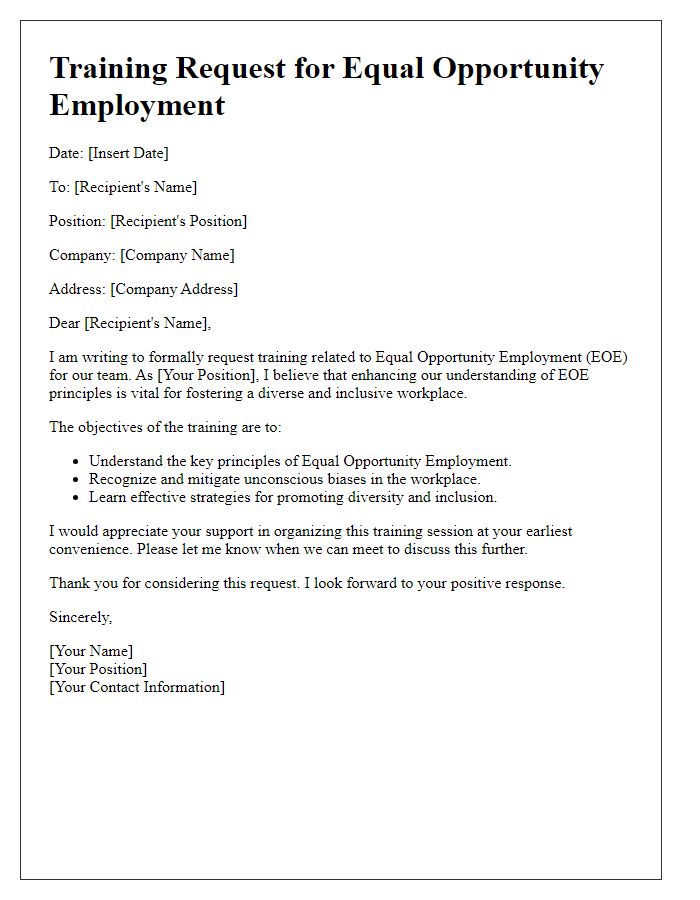
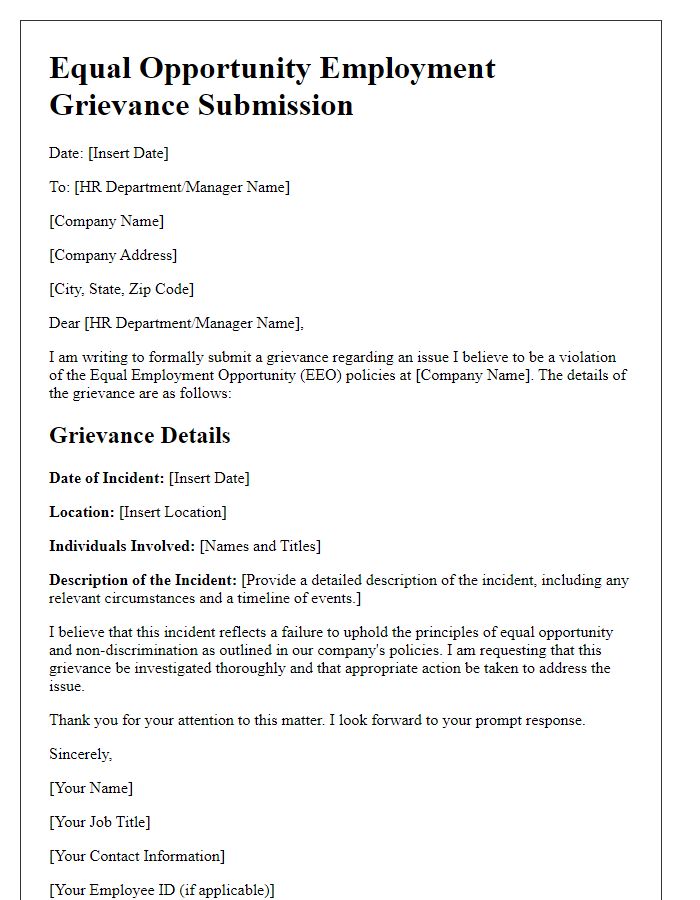


Comments